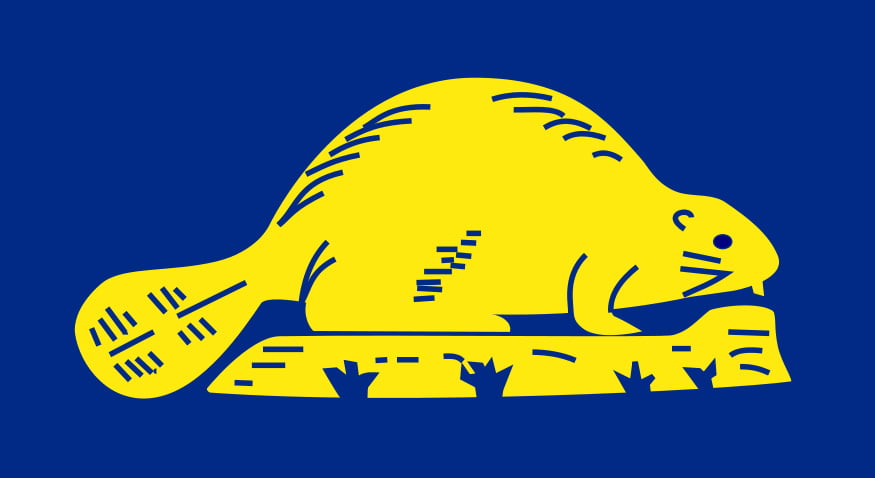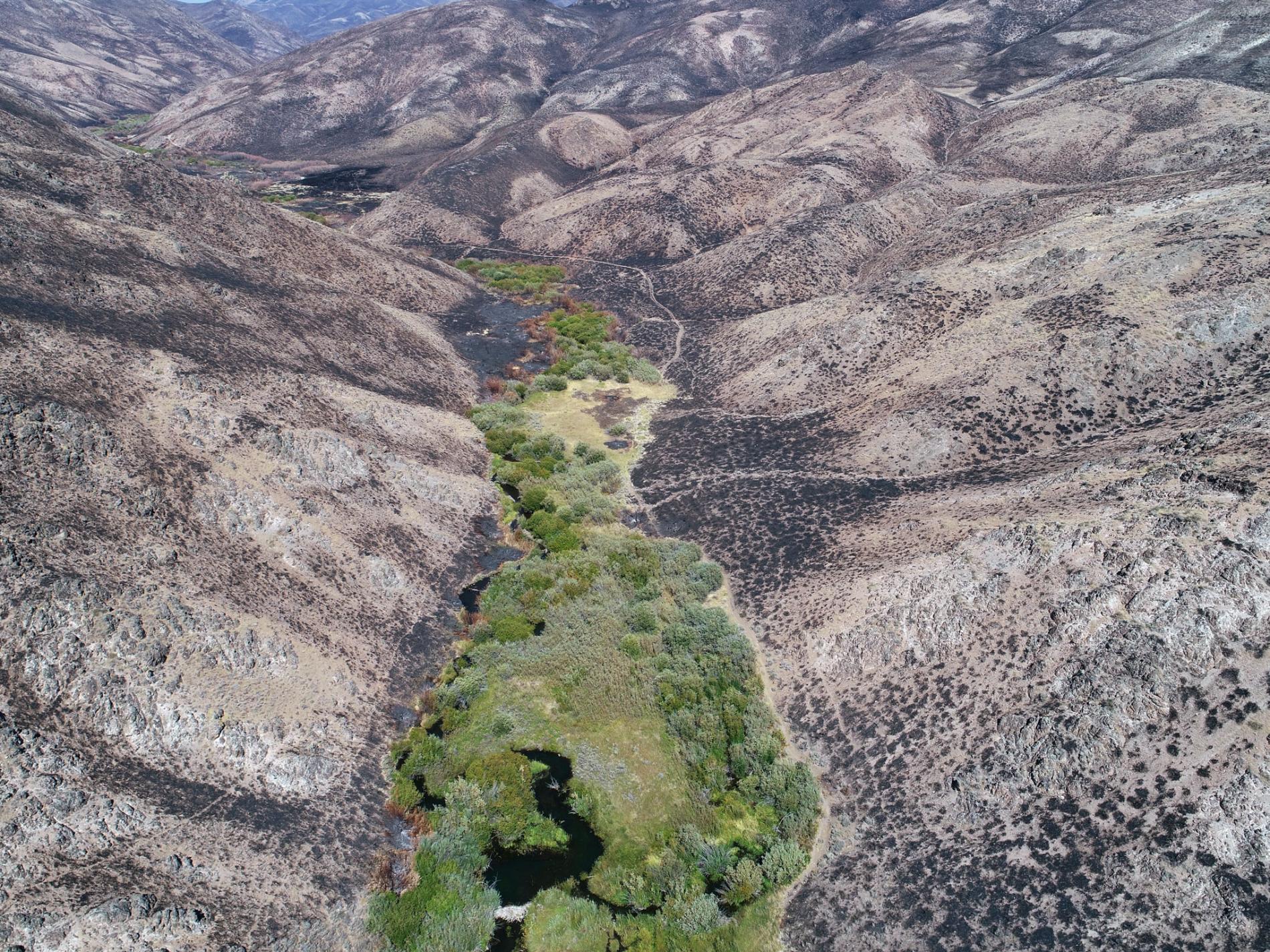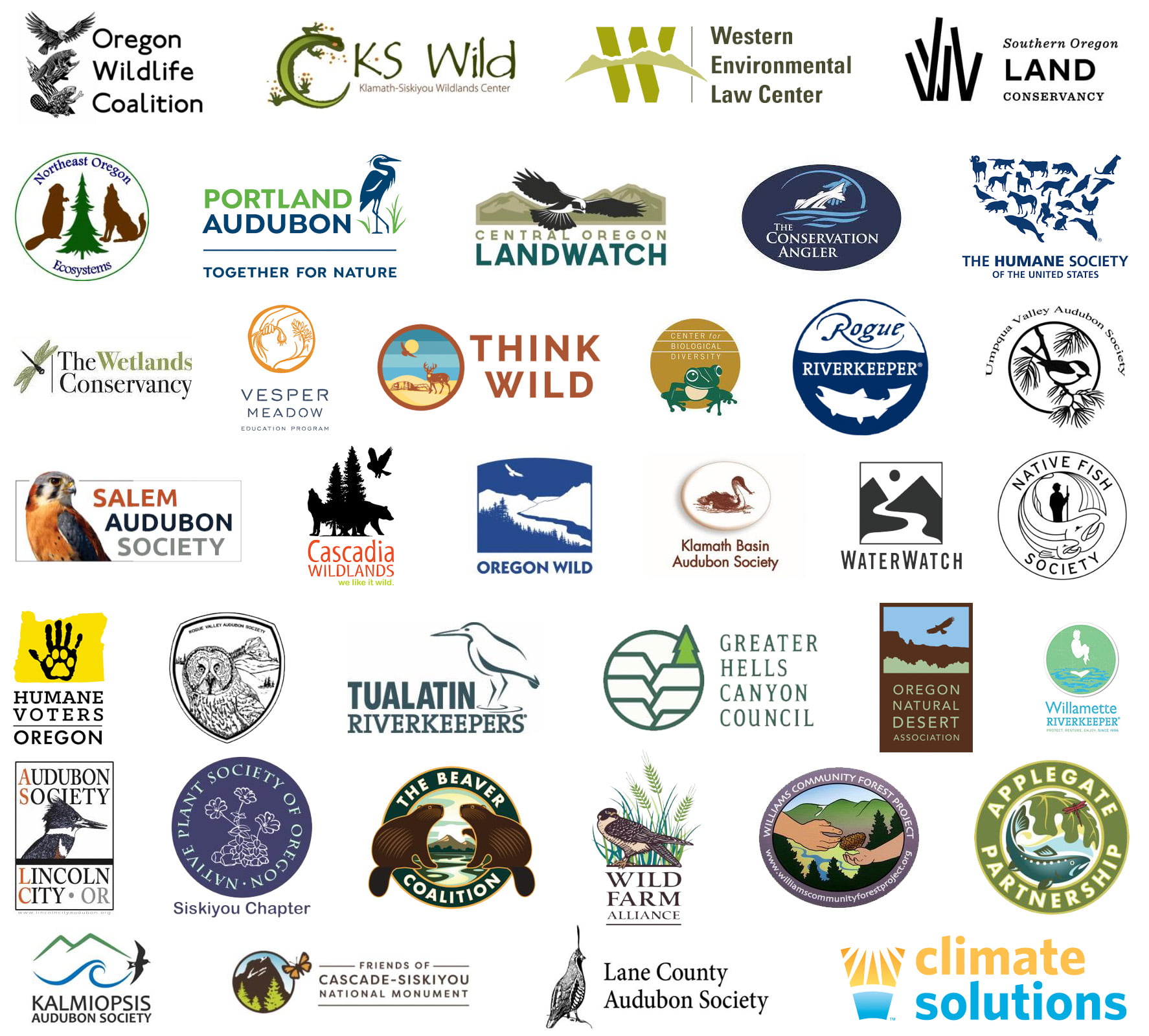 Fact Sheet:
Fact Sheet:
The Oregon “Beaver Believer” Bill (HB 3464)
THE PROBLEM: Beavers are classified as “predatory animals” on private lands in Oregon. As a result, they can be killed with little to no regulation or monitoring in the Beaver State.
Beavers: our allies against climate change impacts
- Beaver modified habitat enhances fire resiliency and creates climate refugia for other species.
- Beavers improve water security, sequesters carbon, and creates healthy habitat for salmon.
- Fewer beavers mean increased wildfire risk, less salmon habitat and decreased water security.
- For the above reasons, beavers are considered keystone species. If they are gone, other species will follow.
Why are beavers classified as “predatory”?
- Beavers fall in the scientific order “rodentia” and under current Oregon law ORS 610, all rodents are classified as “predatory.” It is not a result of the animal’s biology or ecology. “Predatory” status is erroneous and unscientific.
- Beavers are herbivores, and do not prey on other animals.
Challenges Because of “Predatory” Status
- Because of their “predatory” status on private lands, Oregon allows unlimited killing of beavers. There is no tracking of this beaver removal.
- Because of their status, ODFW has no authority to manage them or regulate harvest on private lands.
- There is no state wide population monitoring of beavers by ODFW. We do not know how many beavers we have in our state.
THE SOLUTION: HB 3464. If we change this one classification, Oregon will be more fire resilient, will have healthier salmon runs, and more.
HB 3464 is common-sense legislation that would remove the predatory animal designation from beaver in Oregon. It allows ODFW to begin to manage beaver on private land in Oregon, as it does other wildlife species.
The bill also prompts Oregon Fish and Wildlife Commission to establish a system for beaver management and beaver removal on private lands.
It will allow ODFW and the Commission to:
- Promote the use of non-lethal beaver management tools before resorting to lethal removal,
- Set standards on when beavers can be removed,
- Create a reporting system on beaver removals in the state, and
- Require landowners to report beaver killings to ODFW so the state can have a better picture of the landscape and make effective decisions to minimize harmful impacts of wildfires.

Photo: Beaver habitat mitigates damage after Idaho’s Sharps Fire, by Dr. Joe Wheaton, Utah State University.
HB 3464 Frequently Asked Questions:
The Oregon Department of Fish and Wildlife manages fish and wildlife on private lands and water. Doing the same for beaver opens up possibilities to improve Oregon’s resilience to wildfire, water security, and overall ecological health.
How do beavers help with climate change?
Wetlands and wet meadows created by beavers are natural carbon capture-and-store areas that extract large amounts of carbon from the atmosphere via photosynthesis, a natural process that helps draw down carbon by storing it in roots and decaying matter below ground, in riparian vegetation, and in beaver ponds.
Beaver habitat improves the ability of fish and wildlife to survive climate changes. Their habitats are more stable and less sensitive to short-term climate variability because they contain reservoirs of surface and groundwater that buffer habitats from drought and they create conditions for groundwater recharge to occur during flooding.
Beaver ponds, wetlands and wet meadows hold water in storage and slowly release it, partially offsetting declines in stream flows and water quality related to declining snowpack and spring melt. These natural fire breaks create safety zones for wildlife to survive extreme fire events that are expected to increase with climate change, and can help slow down the spread of fire across a landscape.
How do beavers help with wildfires?
Beavers create and maintain wetlands, wet meadows, and ponds which are natural fire breaks. The areas provide refuge for livestock and wildlife during fires and habitat post-fire which are critical to helping wildlife survive the winter. Because vegetation remains, these areas trap soil eroding from surrounding hillsides post wildfire and prevent it from reaching streams, helping protect water quality.
How do beavers help native fish?
Beavers create habitat that improve the function and diversity of the biological and physical systems native fish need to survive and thrive. Ponds provide critical winter rearing habitat for juvenile Coho salmon. Ponds and wetlands temporarily store surface and groundwater which later contribute to cooler stream temperatures. Currently, ODEQ has identified more than 89,000 miles of streams as too warm. Improved riparian conditions result in greater vegetation and insect life, which enhances food sources for native fish.
How many beavers are there in Oregon?
We don’t know. The only information on beaver numbers comes from the number killed and reported by people hunting and trapping with a “furbearer” license. Between 2000 and 2020 more than 51,000 beavers were reported to ODFW as killed under the furbearer regulations and more than 10,000 were killed by Wildlife Services. Hence, 61,000 is the minimum number because not all human-cause mortality is reported.
How do beavers help farmers and ranchers, and cities and towns?
Farmers and ranchers need water to grow crops and raise livestock. Cities and towns need dependable high-quality water, and drinking water for many Oregonians comes from our forests. Beaver-created habitats temporarily store water in ponds and in the ground, which is then slowly and sustainably released. Because the ponds create conditions that allow for regular groundwater recharge, benefits are maintained over time. This temporary storage helps offset impacts of drought, decreases the frequency and magnitude of downstream flooding, and improves water quality (i.e. stream temperatures, turbidity) and stream flows.
HB 3464 asks that ORS 610.002, which defines “predatory animals,” apply to all “rodents” except beavers. It does not change the scientific classification of beavers.

